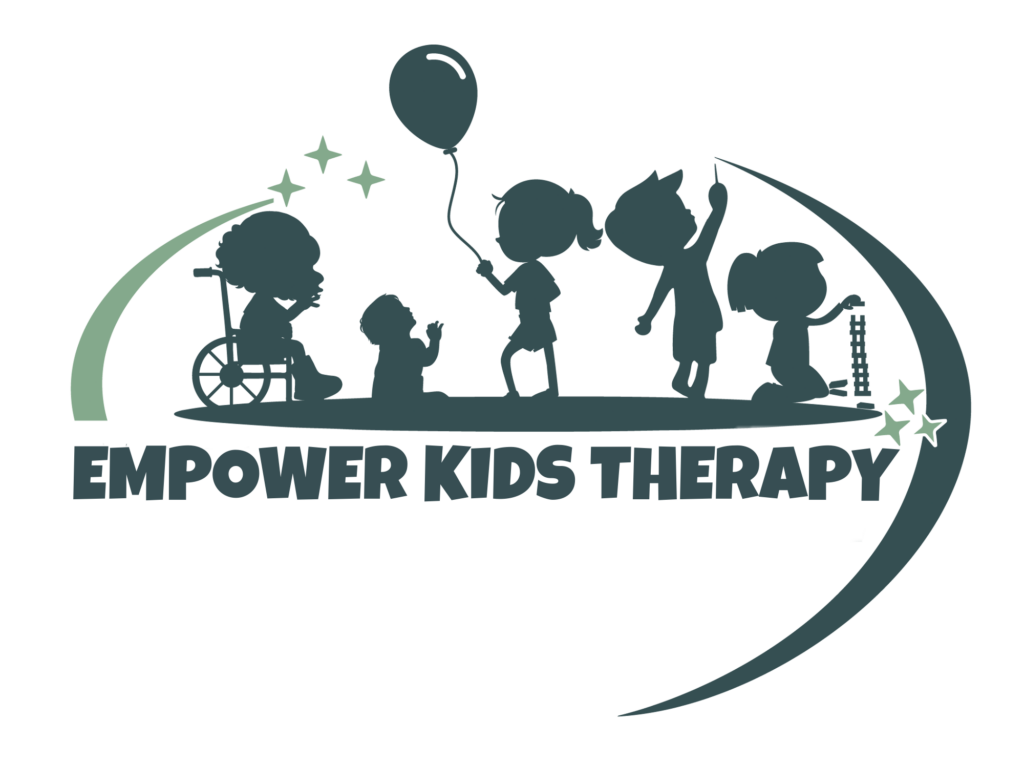Hey there caregivers!
Today, we’re going to explore a fun and effective approach to developing healthy eating habits for your child: play! As a pediatric occupational therapist, I’ve witnessed firsthand the power of play in transforming picky eaters into more adventurous and confident eaters. In this blog post, we’ll delve into the importance of play in shaping your child’s relationship with food and offer practical tips to incorporate play into mealtimes.
So, let’s dive in!
Understanding the Link between Play and Healthy Eating:
Play is a natural and instinctive way for children to learn and explore the world around them. When it comes to eating, play can be a valuable tool in creating positive associations with food, expanding food preferences, and fostering a healthier relationship with mealtimes.
Now, is playing with our food, and being messy the ultimate goal? Absolutely not. But it is a starting point for developing new ways to explore. Here’s why play is crucial in developing healthy eating habits:
- Building Positive Associations: Playful experiences with food can help your child associate mealtimes with enjoyment and fun. By incorporating play, you can create a positive environment that encourages your child to approach new foods with curiosity and excitement. It decreases the stress your child feels about new foods and allows them to explore and learn about them in a fun way.
- Sensory Exploration: Children use their senses to explore and understand their surroundings, including food. Through play, they can engage in sensory experiences with various textures, tastes, and smells. This sensory exploration can lead to increased acceptance of different foods and reduced aversions. This is where they learn about the food! Eating is more than just picking up the food and taking a bite. It’s okay to get messy!
- Developing Oral Motor Skills: Play activities involving chewing, biting, and tongue movements help develop the oral motor skills necessary for efficient and safe eating. By engaging in playful exercises, your child can strengthen these skills, leading to improved eating abilities.

How to Play During Mealtimes
Now that we understand the importance of play, let’s explore some tips for incorporating play into mealtimes:
- Food Art: Encourage your child to create colorful and imaginative food art on their plate using different foods. Let them unleash their creativity while exploring various food textures and flavors.
- Sensory Bin Exploration: Create a sensory bin filled with edible materials such as cooked pasta, chopped fruits, or cereal. Allow your child to explore the bin, encouraging them to touch, smell, and taste the ingredients. This playful sensory experience can foster acceptance of different foods.
- Cooking Together: Involve your child in meal preparation. Let them participate in age-appropriate cooking tasks like stirring, pouring, or mixing. This hands-on experience not only encourages a positive connection with food but also empowers your child to take ownership of their meals.
- Food Tasting Games: Turn food tasting into a game by blindfolding your child and having them guess the food they’re tasting based on its flavor or texture. This activity promotes exploration and exposes your child to new tastes and textures in an exciting way.
- “Transform” Food into…: You can use your imagination and make food into something new. Pasta can be a spaceship that you need to spit into outer space. Chips can be crushed into dirt to allow the carrot to dig for buried treasure.
Always remember to have an item like a washcloth or paper towel to allow your child to clean their hands if they become too overwhelmed.
Parent Online Feeding Course
If you find that your child’s picky eating habits persist despite your best efforts, consider learning more in our online parent feeding course. You can learn how to address feeding challenges at mealtimes, create a more positive and successful mealtime experience for your child, and remove the stress of making multiple meals.
Course coming Fall 2024
There is Power in Playing with Your Food
Play is a powerful tool in shaping your child’s eating habits and fostering a positive relationship with food. By incorporating play into mealtimes, you can create a fun and engaging environment that encourages exploration, expands food preferences, and promotes healthy eating habits.
Remember to download our free Mealtime Success Guide for more practical tips, and don’t hesitate to reach out to our feeding therapy services if you need additional support.
Let’s make mealtimes a time of joy, discovery, and nourishment for your child. Embrace the power of play and watch your little one become a confident and adventurous eater!
I’m here to support you every step of the way.












